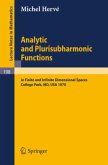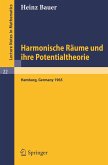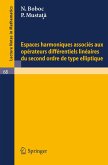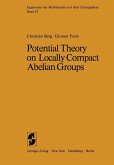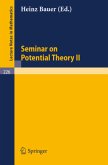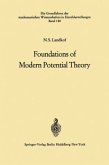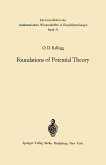There has been a considerable revival of interest in potential theory during the last 20 years. This is made evident by the appearance of new mathematical disciplines in that period which now-a-days are considered as parts of potential theory. Examples of such disciplines are: the theory of Choquet capacities, of Dirichlet spaces, of martingales and Markov processes, of integral representation in convex compact sets as well as the theory of harmonic spaces. All these theories have roots in classical potential theory. The theory of harmonic spaces, sometimes also called axiomatic theory of harmonic functions, plays a particular role among the above mentioned theories. On the one hand, this theory has particularly close connections with classical potential theory. Its main notion is that of a harmonic function and its main aim is the generalization and unification of classical results and methods for application to an extended class of elliptic and parabolic second order partial differential equations. On the other hand, the theory of harmonic spaces is closely related to the theory of Markov processes. In fact, all important notions and results of the theory have a probabilistic interpretation.
Hinweis: Dieser Artikel kann nur an eine deutsche Lieferadresse ausgeliefert werden.
Hinweis: Dieser Artikel kann nur an eine deutsche Lieferadresse ausgeliefert werden.


